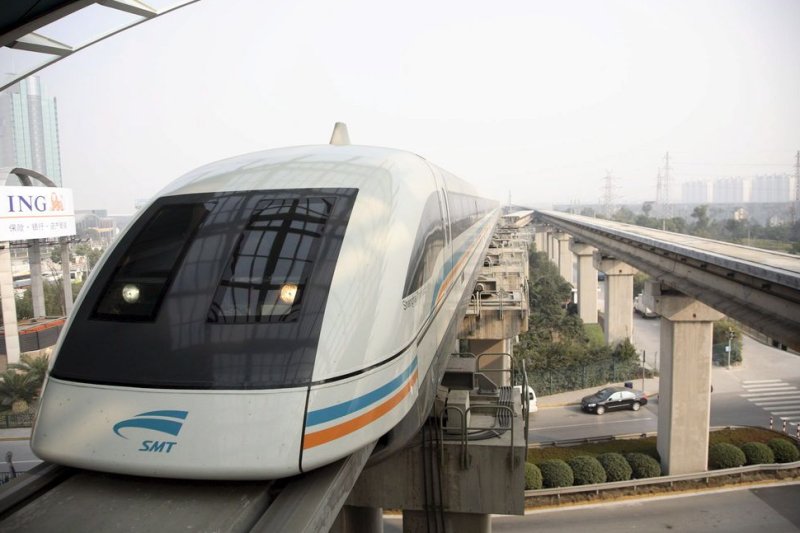China operates a magnetically levitating, or maglev, train in Shanghai, and has plans to build a network with 620 miles of tracks, according to a press report Tuesday. File Photo by Qilai Shen/EPA
July 20 (UPI) -- China unveiled a new maglev train that it said can travel as fast as 373 mph, which would make it the fastest land-based transportation vehicle in the world, according to multiple press reports.
China Railway Rolling Stock Corp. said Tuesday that China soon would become a "transport superpower" with the new train that floats above tracks through the use of electromagnetic force, the South China Morning Post reported.
The firm began work on the project in 2016 jointly with 30 companies, research universities and other institutes, according to HK01 on Tuesday.
The train was built in the city of Qingdao, on China's eastern coast. Chief engineer Liang Jianying had said earlier this year that the train would be available to the public in five to 10 years, according to the Post.
China last year revealed ambitious new plans to launch more maglev routes. In July 2020, the government said it planned to build a network with as many as nine maglev lines that include 620 miles of tracks, the report said.
China's maglev trains are currently limited to short distances. A line in Shanghai operates between an airport and city center.
Other high-speed trains have begun operation this year.
Trains that operate at a maximum speed of 217 mph in Tibet went into service June 25. The 250-mile network, which connects the Tibetan capital Lhasa to the city of Nyingchi, took six years to complete and cost $5.6 billion, according to CNN.
Maglev projects are costlier than other technologies.
Information Technology and Innovation Foundation in Washington said maglev trains in China cost 1 1/2 times more than conventional high-speed trains, according to the Post.
"There are many technological issues to overcome to develop and deploy high-speed maglev trains as part of an integrated transport system," the foundation said in April.
It added: "There is also the overarching question as to whether there is an ideal distance and market that can leverage maglev's higher speeds at an affordable price.
At the moment, China's government is betting that it can do both as it throws significant financial resources and policy support behind its firms to make maglev trains happen."















